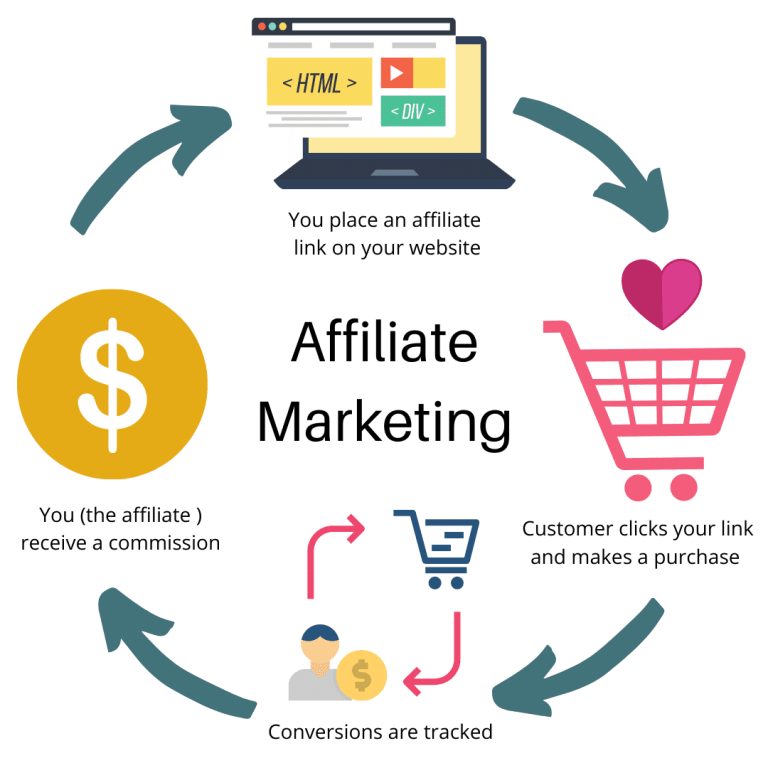In the world of digital entrepreneurship, affiliate marketing has emerged as a powerhouse strategy for businesses and individuals alike. It’s a symbiotic relationship where affiliates promote products or services, earning a commission for each sale, lead, or action generated through their marketing efforts. This mutually beneficial arrangement opens up a plethora of opportunities and advantages for both parties involved. Let’s delve into the top 10 benefits of affiliate marketing and why it’s become a cornerstone of modern online commerce.
Affiliate marketing requires minimal upfront investment. Unlike traditional business models that demand substantial capital for product development, inventory, or storefronts, affiliates can start with little to no money. This low-risk nature allows individuals to dip their toes into entrepreneurship without the fear of significant financial loss. Moreover, since affiliates earn commissions only when they drive conversions, the potential for high returns exists without the burden of substantial initial investments.
One of the most alluring aspects of affiliate marketing is its potential for passive income. Once affiliates set up their marketing channels, such as blogs, social media accounts, or email lists, they can continue earning commissions on sales generated through their content, even while they sleep. This passive income stream offers financial freedom and flexibility, allowing individuals to pursue other endeavors or enjoy leisure time while still earning money.
Affiliate marketing provides unparalleled flexibility and freedom. Affiliates have the autonomy to choose their niche, products, and promotional strategies based on their interests, expertise, and audience preferences. They can work from anywhere with an internet connection, whether it’s from the comfort of their home, a cozy coffee shop, or a tropical beach destination. This flexibility enables affiliates to create a lifestyle tailored to their preferences, balancing work and personal life according to their needs.
Unlike traditional businesses that incur overhead costs such as rent, utilities, or employee salaries, affiliate marketers can operate with minimal overhead expenses. Since they don’t handle product creation, storage, or shipping, affiliates can bypass the logistical complexities and associated costs of traditional business operations. This cost-effectiveness allows affiliates to focus their resources on marketing efforts, maximizing their ROI and profitability.
The digital landscape transcends geographical boundaries, offering affiliates access to a global audience. Unlike traditional brick-and-mortar businesses constrained by physical location, affiliates can leverage the power of the internet to reach potential customers worldwide. This global reach not only increases the potential for sales but also diversifies revenue streams, reducing reliance on any single market or demographic. By tapping into diverse markets, affiliates can mitigate risks and capitalize on emerging trends and opportunities.
In traditional business models, customer support can be a time-consuming and resource-intensive aspect, requiring dedicated personnel and infrastructure. However, in affiliate marketing, affiliates typically have minimal customer support responsibilities. Once a visitor clicks on their affiliate link and is redirected to the merchant’s website, the responsibility for customer service, order fulfillment, and after-sales support lies with the merchant. This hands-off approach allows affiliates to focus on what they do best – driving traffic and generating conversions.
Affiliate marketing opens doors to diverse monetization opportunities beyond just promoting products or services. Affiliates can explore various affiliate programs, including pay-per-click (PPC), pay-per-lead (PPL), or pay-per-action (PPA), depending on their preferences and audience dynamics. Additionally, affiliates can monetize their content through other avenues such as display advertising, sponsored content, membership sites, or online courses. This diversification not only enhances revenue streams but also provides resilience against market fluctuations and changes in consumer behavior.
Engaging in affiliate marketing offers a valuable learning experience that transcends monetary rewards. Affiliates gain insights into digital marketing strategies, audience behavior, market trends, and conversion optimization techniques. They develop valuable skills in content creation, SEO, social media marketing, email marketing, analytics, and more, which are transferable across various industries and career paths. Moreover, the dynamic nature of affiliate marketing encourages continuous learning and adaptation, fostering personal and professional growth.
Affiliate marketing thrives on collaboration, networking, and knowledge sharing within a vibrant community of affiliates, merchants, and industry experts. Affiliates have access to forums, online communities, conferences, and networking events where they can connect with like-minded individuals, seek advice, and share insights. This supportive ecosystem fosters collaboration, mentorship, and collective growth, empowering affiliates to overcome challenges, stay updated on industry trends, and unlock new opportunities for success.
In conclusion, affiliate marketing offers a myriad of benefits that make it an attractive opportunity for aspiring entrepreneurs, content creators, bloggers, influencers, and businesses alike. From its low-risk nature and passive income potential to its flexibility, global reach, and collaborative community, affiliate marketing provides a pathway to financial independence, creative expression, and personal fulfillment. By harnessing the power of affiliate marketing, individuals can embark on a rewarding journey of entrepreneurship, leveraging their passion, skills, and ingenuity to create value for themselves and their audience in the digital age.






